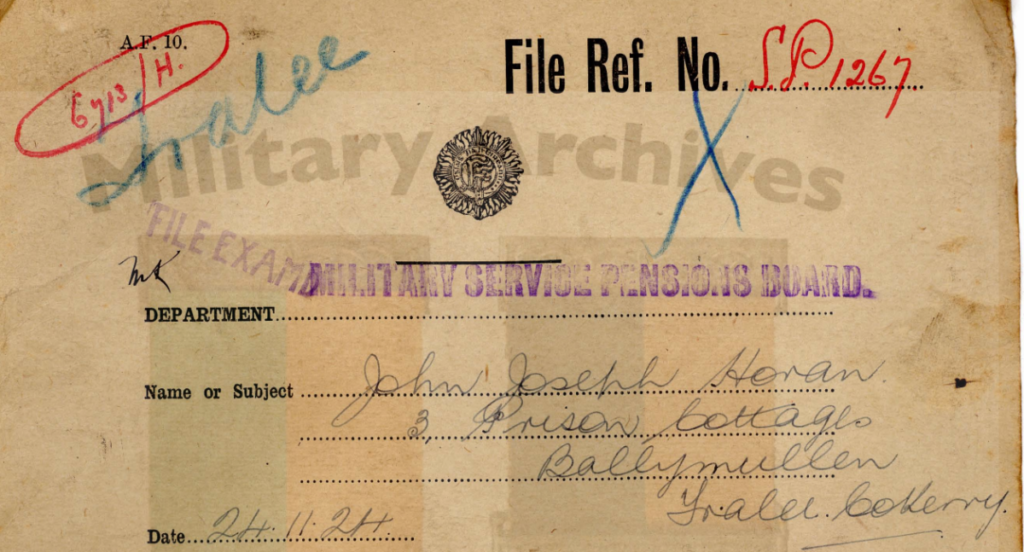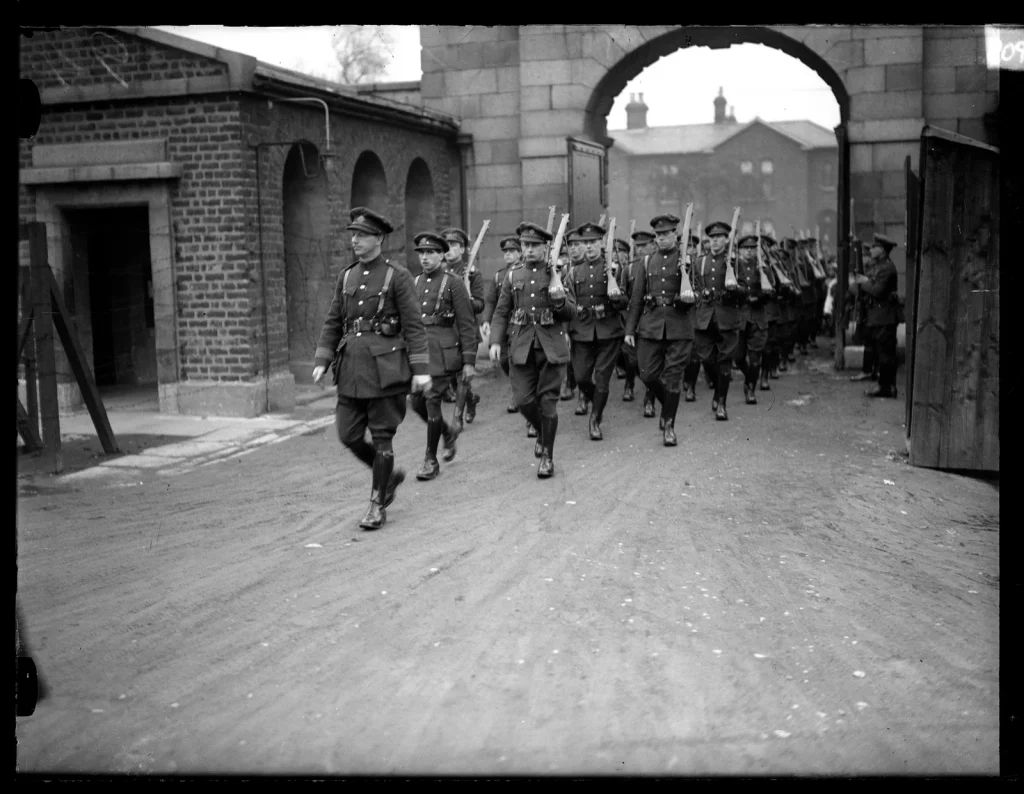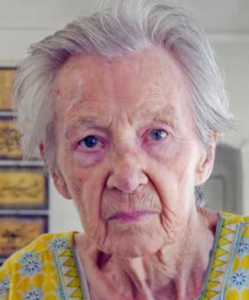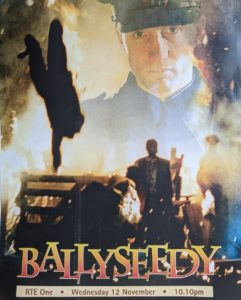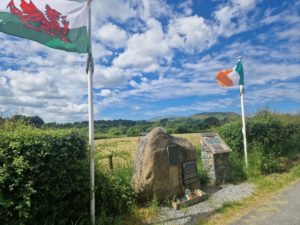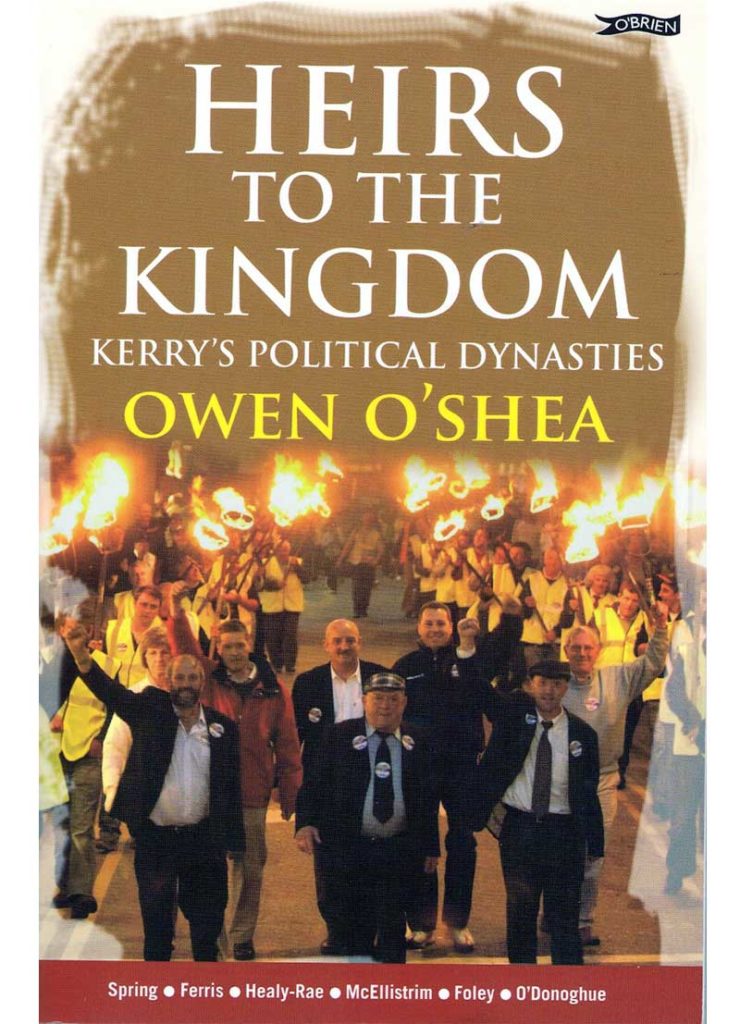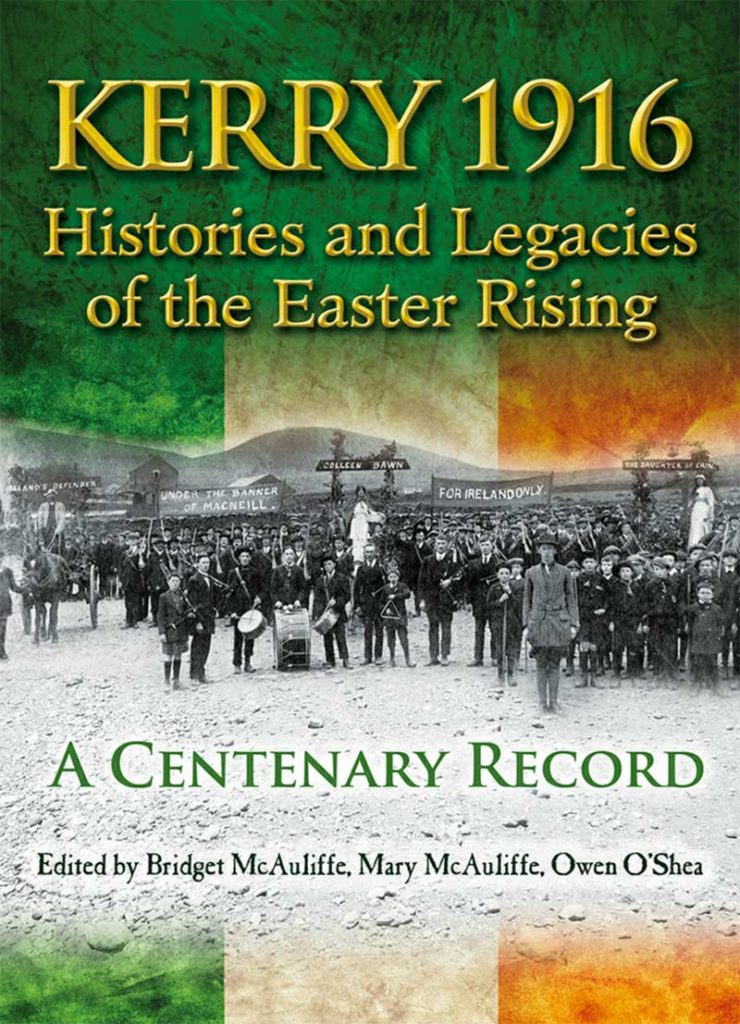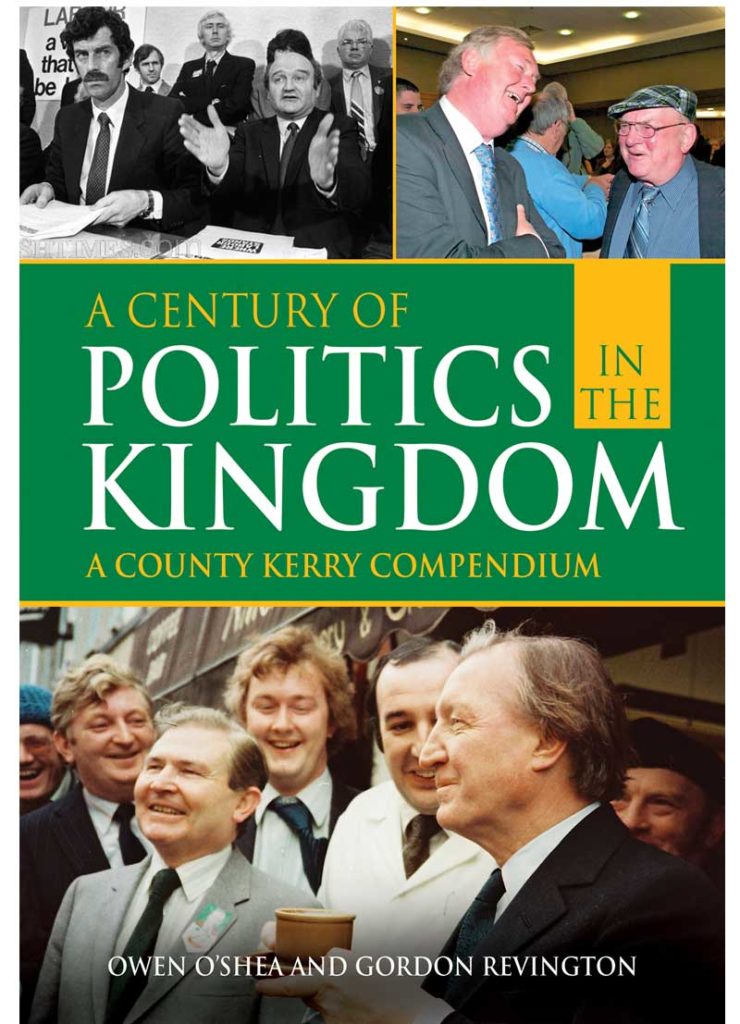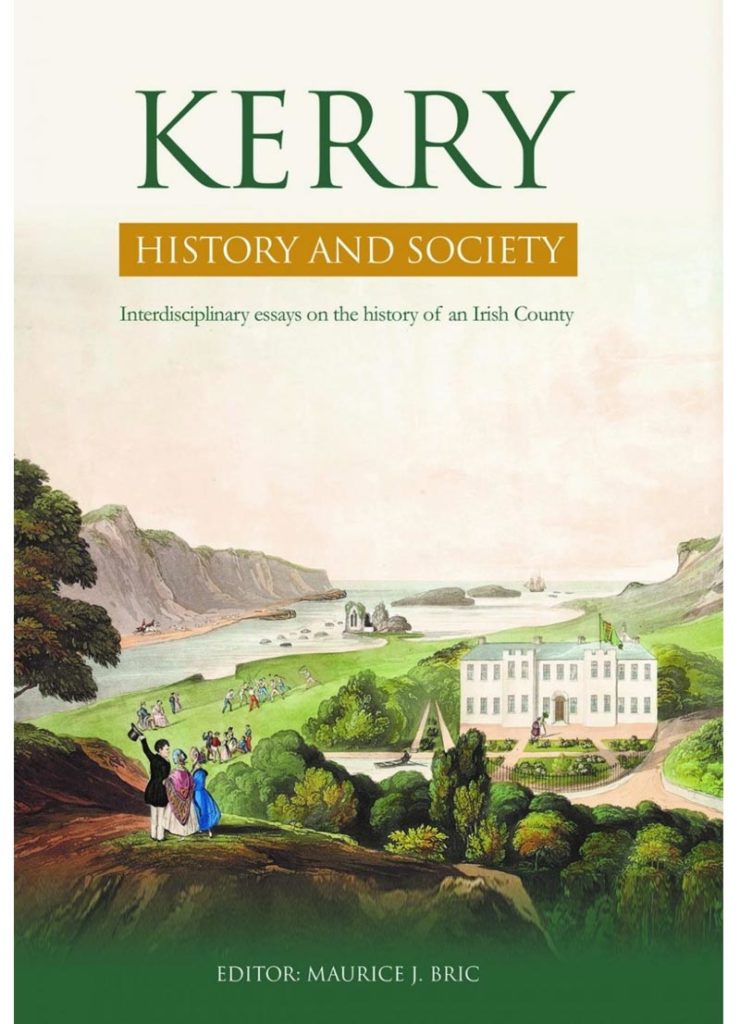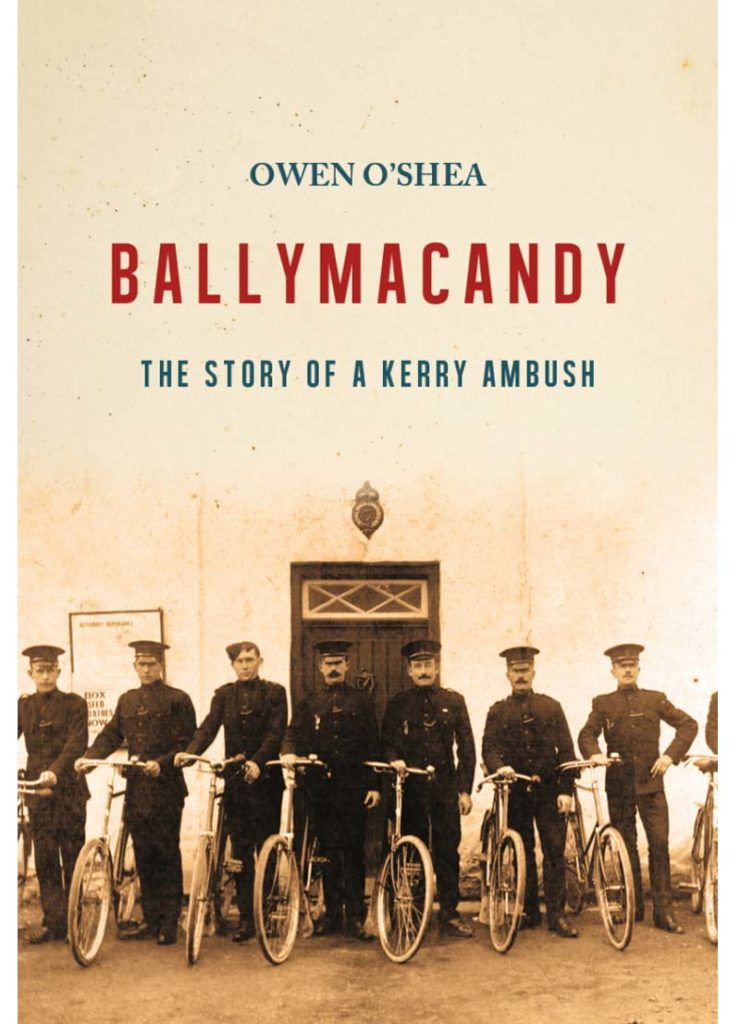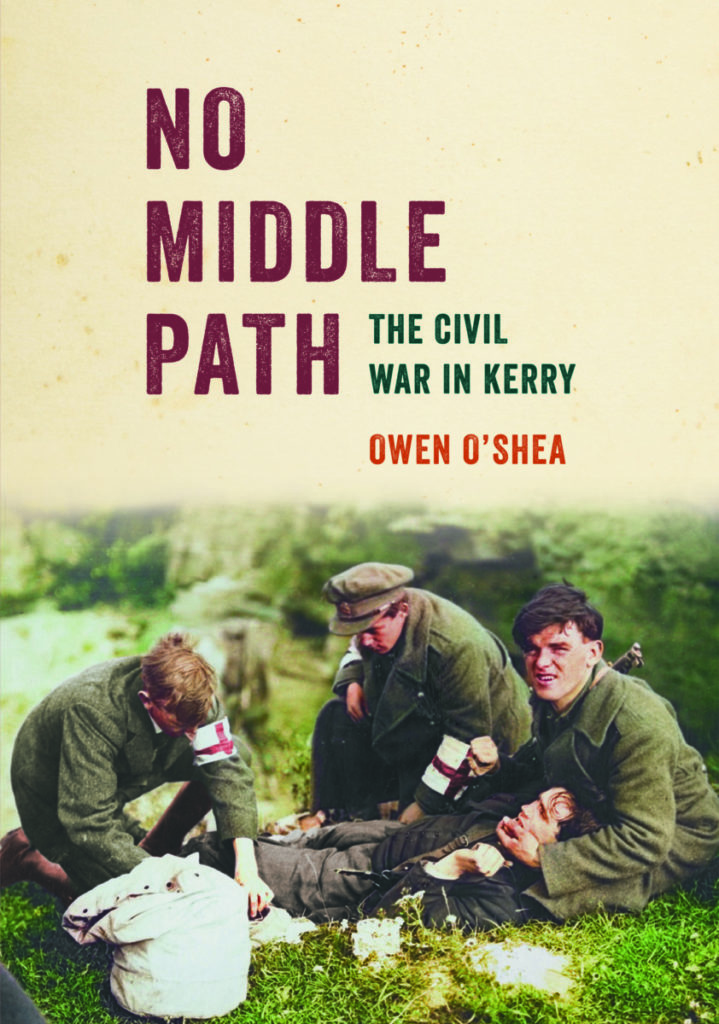Not many citizens of the Irish Free State were writing to their prime minister in the 1930s. In an age of greater deference to those in high office and when residents of the newly independent state would rarely approach senior political figures with their problems and concerns, letters from ordinary men and women arriving on the desk of Éamon de Valera would have been a rarity. De Valera, the leader of the campaign against the Anglo-Irish Treaty during the Civil War, had been in office as President of the Executive Council (later Taoiseach) for two years when he received the typed letter from Kathleen Horan.
De Valera’s party, Fianna Fáil, had swept to power in 1932, bringing an end to WT Cosgrave’s Cumann na nGeadheal government which had, for a decade, presided over the establishment and administration of the Free State. Notwithstanding the fact that Kathleen Horan and her family had been supporters of the Cumann na nGeadheal regime, and her husband a member of the Free State army – which had been connected with some of the worst atrocities of the Civil War in Kerry – she felt driven to write an emotional and emotive letter to De Valera in the summer of 1934.
Kathleen’s husband, John Joe Horan, who grew up at Francis Street in Tralee, had fought the Crown Forces at the GPO during Easter Week and did prison time in Frongoch in Wales with countless of his fellow Kerry men and the Volunteers across the country who had mobilised for revolution. As a senior IRA man in his home county, he took the fight to the Black and Tans in his native Tralee, including during the so-called Siege of Tralee in November 1920.
When that war came to an end, John Joe Horan went pro-Treaty, unlike the vast majority of the Kerry IRA in 1922. But politics might not have been his only reason for joining the Free State Army in August 1922 as they waged war against the Irregulars. The prospect of employment and an income to help him to bring up his six children with Kathleen was also likely a lure.
After being demobilised from the overmanned army along with thousands of others in 1924, John Joe fell on hard times and was out of work. Like many of his former colleagues, he applied, and waited patiently for, the pension payment for which he qualified under the Army Pensions Act of 1923, and for which he was eligible following his time in the IRA and the Free State Army.
The process of application was tedious and slow, but given his circumstances, securing a payment was an urgent concern for Horan, who was twenty-seven when the Civil War came to an end.[i] He pleaded with the Department of Defence in 1926 to deal with his application. He was, he told them, a:
‘married man with five children whose ages are from 7 years to 5 days. I have also an aged father dependant, my mother having died while I was operating with the National Army Column in Kerry in 1923 … I am able to just feed them but as for clothing including myself and wife who is at present ill, we are absolutely in the rags.’[ii]
Horan finally qualified for a pension in 1925 in recognition of his eleven years of service during the Rising, the War of Independence and the Civil War. In subsequent years, when the family moved to Dublin, where Horan had acquired a job after a period of unemployment, his wife, Kathleen, appealed to President WT Cosgrave for an advance on her husband’s pension so they could afford a house in which to live. She wanted to ‘save my children from going into decline’ and was ‘almost distracted at the change which had taken place’ in her young children since their arrival in Dublin in 1927.[iii]
Mrs Horan’s request was politely declined by President Cosgrave’s office, citing ineligibility under the pensions legislation.
But Mrs Horan’s hardship did not end there. John Joe Horan died, intestate, on 29 July 1934 leaving Kathleen alone to raise six young children at her home at Donnycarney on Dublin’s northside. Kathleen was bereft, financially as well as emotionally. Her husband’s death prompted Kathleen to put pen to paper to contact President De Valera:
Dear Sir,
Would you please help me in my very sad plight?
My husband died on the 29th July, 1934 and I am left with six young children. He had a Military Service pension which I received on the 1st August and I returned same to Pension Office, Parkgate Street on 2nd August because it was in my husband’s name. I have heard nothing about it since although it was due to me up to the time of his death.
I would also like if you could help me to get my three little boys into O’Brien’s Orphanage, Malahide Road, Marino. It is an Orphanage for respectable boys, as I have heard some ladies left sums of money to be used for respectable boys like mine whose father dies.
Their father has died at the early age of 35 years as the result of his fight for Irish freedom. He took part in the 1916 Rising and continued his service up to 1924. Up to the time of his death, he was employed in the Office of Public Works, 51 St Stephen’s Green.
I have no pension or means of support whatever to rear my six little children. Their ages are from 14 years to 2 years, and what in God’s Holy name am I to do? So I make this appeal to you, Dear Sir, to help me if possible and may God’s blessing pour down on you and yours in the sincere prayer of a poor widow and her six little orphans.
Yours faithfully,
(Mrs.) Kathleen Horan.[iv]
Kathleen Horan received a reply from Éamon de Valera’s private secretary four days later. He conveyed the sincere sorrow of the president on learning of her plight. The payment of the balance of her husband’s pension would be raised with the Department of Defence and the Minister for Industry and Commerce would be asked to favourably consider Mrs Horan for work as a cleaner in government offices. Finally, any acceptance of her three sons by the O’Brien Institution (Orphanage), would be a matter for ‘Brother Geoghegan, Superior, who will no doubt, be glad to assist you with information if you will make application to him.’[v]
A month later, the balance of Horan’s pension, totalling six pounds, eighteen shillings and eight pence was transferred to Kathleen Horan. In 1938 however, a ‘penniless’ Kathleen was outside the timeframe for applying for a pension payment under the (WHICH?) new act by just ‘one day.’ She told the department she had been a day late with her application because of the death of her youngest child.
Even forty years later, Kathleen Horan’s lot had improved little despite qualifying for a pension as John Joe’s widow. Living in Glasnevin in 1975, she told the Department of Defence that the pension was so small that she was ‘living on bread and tea from one end of the year to another. My pension is £6 it is dreadful in these hard times.’[vi] In April 1975, Kathleen Horan finally received some good news: the Department agreed to increase the amount of her monthly widow’s allowance.
But it was too little, too late. When Kathleen failed to cash some of her payments, the Department of Defence asked An Garda Síochána to ascertain her whereabouts and circumstances. Sergeant Denis Hurley of Mountjoy Garda Station was able to discover that Kathleen had been admitted to the Geriatric Unit of the Richmond Hospital ‘some time ago.’
A social worker envisaged that she would be ‘a patient in the hospital for the foreseeable future.’[vii] Even when she returned to her home she continued to plead her case with the authorities until her death on 6 December 1978, ironically the anniversary of the signing of the Treaty which her husband had fought against his fellow Irish men to defend.
For more see No Middle Path: The Civil War in Kerry by Owen O’Shea, available now in all good bookshops
[i] Kerry 1916: Histories and Legacies of the Easter Rising, p. 240.
[ii] Letter from JJ Horan to the Army Finance Officer; MPSC 24AP1267, JJ Horan
[iii] Letter from Mrs J Horan to President Cosgrave, 9 October 1929; MPSC 24AP1267, JJ Horan
[iv] Letter from Mrs Kathleen Horan to President De Valera, 24 August 1934; MPSC 24AP1267, JJ Horan
[v] M. Ó Catháin to Mrs Kathleen Horan, 28 August 1934; MPSC 24AP1267, JJ Horan
[vi] Kathleen Horan to Department of Defence, 17 February 1975; MPSC 24AP1267, JJ Horan
[vii] Report of Sgt Denis Hurley, An Garda Síochána; MPSC 24AP1267, JJ Horan

